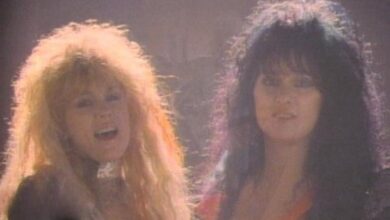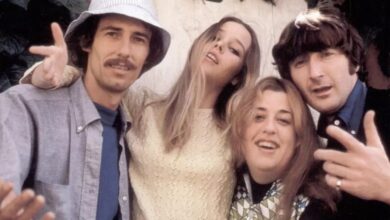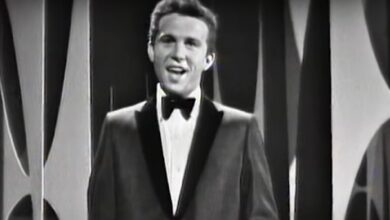B.J. Thomas’ ‘Raindrops Keep Fallin’ on My Head’ Brings Optimism to 1969 and Becomes an Enduring Classic
Released in 1969, “Raindrops Keep Fallin’ on My Head” became an instant sensation, embodying a sense of optimism at a time when the world was grappling with uncertainty. Originally written for the hit film Butch Cassidy and the Sundance Kid, the song carried a lighthearted yet profound message of resilience. With its breezy melody and uplifting lyrics, it soared to number one on the Billboard Hot 100 and remained there for four weeks, eventually earning an Academy Award for Best Original Song. Its gentle arrangement and warm delivery made it one of the most recognizable tunes of its era, standing as a defining moment in both pop and film history.
At the heart of this song was B.J. Thomas, an artist who had already made a name for himself blending pop and country influences. Born in Hugo, Oklahoma, and raised in Texas, Thomas first gained attention as the lead singer of The Triumphs, scoring an early success with a cover of Hank Williams’ “I’m So Lonesome I Could Cry” in 1966. With a rich, emotive voice that carried both sincerity and charm, he seamlessly moved between pop, country, and gospel, earning a wide-reaching fan base. Despite battling personal struggles, Thomas remained a powerful presence in the industry, and “Raindrops Keep Fallin’ on My Head” would solidify his status as a household name.
The song was crafted by the legendary songwriting duo Burt Bacharach and Hal David, known for their sophisticated yet accessible compositions. When tasked with creating a lighthearted theme for Butch Cassidy and the Sundance Kid, they sought to capture the carefree spirit of Paul Newman’s character. However, the song almost didn’t happen—Bacharach’s first choice to sing it was Ray Stevens, who turned it down. Eventually, B.J. Thomas was selected, despite recovering from laryngitis at the time of recording, leading to some initial doubts about his vocals. Nevertheless, his laid-back delivery and effortless phrasing proved perfect for the song’s whimsical yet philosophical tone.
The recording process was not without its challenges. Bacharach, a meticulous perfectionist, was deeply involved in every aspect of production, from the string arrangements to the percussive rhythm that gave the song its signature bounce. The session took place at A&R Recording Studios in New York, with Bacharach himself conducting the orchestra. Thomas, still struggling with vocal strain, recorded several takes, and his slightly husky performance added an endearing vulnerability to the track. The final version blended soft brass, gentle guitar strums, and a swaying rhythm, creating an instantly hummable tune that felt like a ray of sunshine.
Upon its release, the song received widespread acclaim, becoming one of the most instantly recognizable hits of 1969. It climbed to the top of the Billboard Hot 100, peaked at number one on the Adult Contemporary charts, and even reached the UK Top 40. The song’s inclusion in Butch Cassidy and the Sundance Kid further propelled its success, making it an inseparable part of the film’s legacy. Winning an Oscar for Best Original Song and a Grammy Hall of Fame Award, it became a staple on both radio and television, frequently appearing in commercials, TV shows, and film soundtracks.
Beyond its commercial success, the song left a lasting cultural imprint. Coming at the end of a turbulent decade, its message of perseverance resonated deeply with audiences. Unlike the psychedelic and hard rock anthems dominating the charts, “Raindrops Keep Fallin’ on My Head” provided a gentle counterpoint, proving that soft pop could still captivate listeners. Its blend of pop, folk, and jazz elements also showcased Bacharach and David’s ability to craft sophisticated yet deeply accessible music.
For B.J. Thomas, the song was a career-defining moment. Though he had previous hits, nothing matched the universal reach of “Raindrops.” The success of the song opened doors to new audiences and opportunities, leading him to record more crossover hits such as “Hooked on a Feeling” and “I Just Can’t Help Believing.” It also allowed him to explore gospel music, where he would later win multiple Grammy Awards. However, despite further successes, “Raindrops” remained the song most associated with his name.
The song’s influence extended beyond Thomas, inspiring countless covers and reinterpretations. Artists ranging from Johnny Mathis to Bob Dylan have recorded versions, and it has been performed in various styles, including jazz, country, and easy listening. The UK punk band Manic Street Preachers even gave it an unexpected twist by incorporating it into their live performances, demonstrating its remarkable versatility.
At the time of its release, Thomas was navigating personal challenges, including substance abuse struggles, which he would later overcome with a strong faith-driven transformation. Despite these hurdles, he remained a beloved and enduring figure in the music industry, and “Raindrops” helped him sustain a successful career for decades.
Even today, the song remains a timeless favorite, frequently appearing on lists of greatest movie songs of all time. It continues to receive airplay on oldies stations, film retrospectives, and nostalgia-driven playlists, proving its universal appeal. Its optimistic message, married with Bacharach and David’s signature sound, makes it as relevant today as it was in 1969.
Musically, “Raindrops Keep Fallin’ on My Head” helped pave the way for the soft rock and adult contemporary boom of the 1970s, influencing artists like James Taylor, Carpenters, and Christopher Cross. Its easygoing yet sophisticated arrangement set a standard for future singer-songwriters, showing that music could be both catchy and deeply meaningful.
B.J. Thomas, who passed away in 2021, was honored with multiple lifetime achievement awards, and his name remains synonymous with this unforgettable tune. The song’s longevity, warmth, and hopeful spirit continue to inspire, standing as a testament to the power of music to uplift and endure.
More than half a century later, “Raindrops Keep Fallin’ on My Head” still brings a smile to listeners, proving that sometimes, the most powerful message is simply to keep moving forward, no matter the storm.



